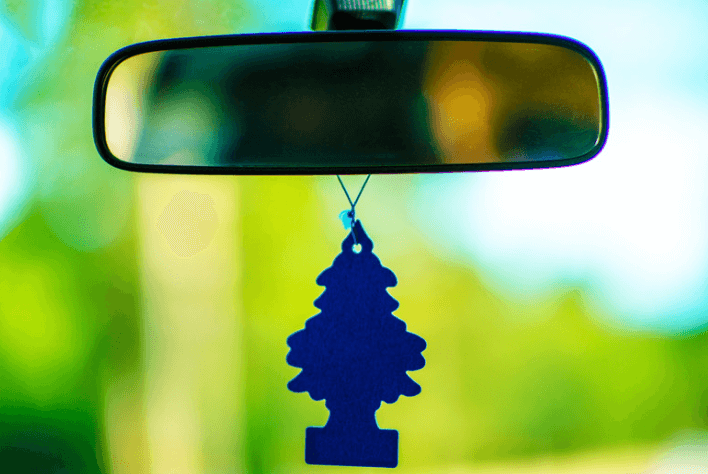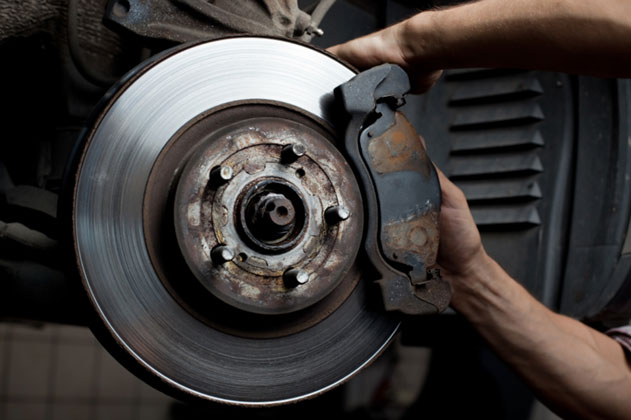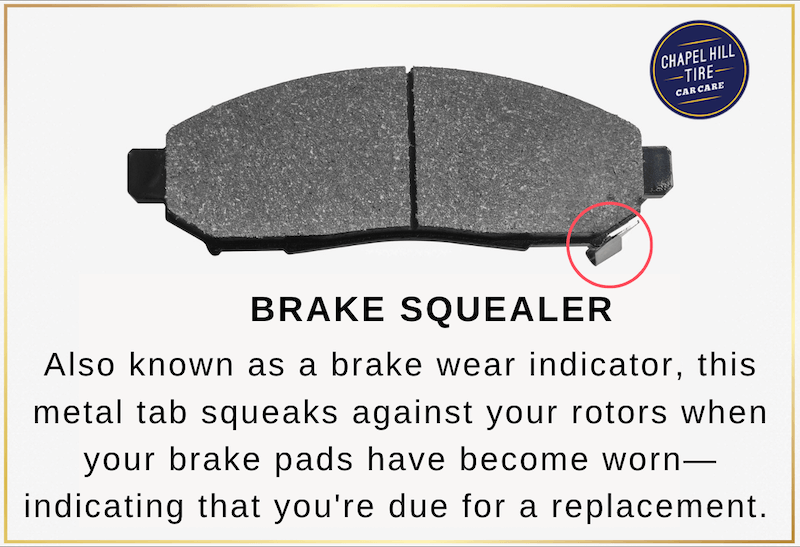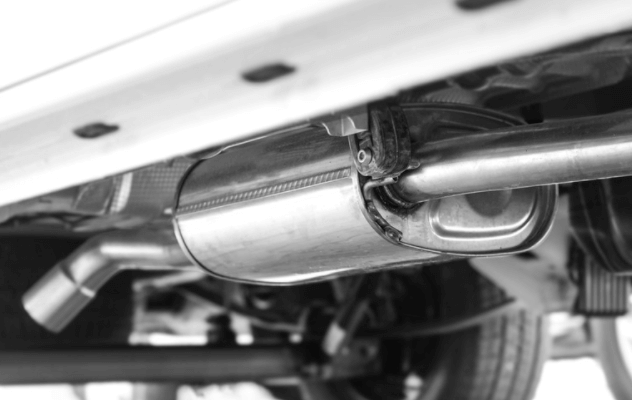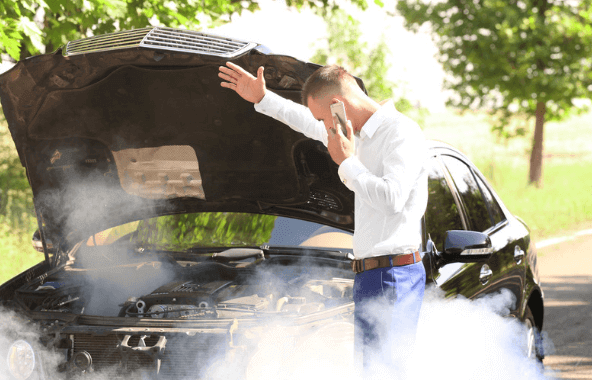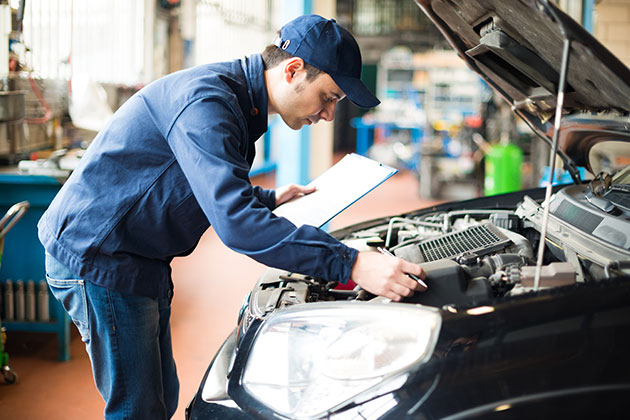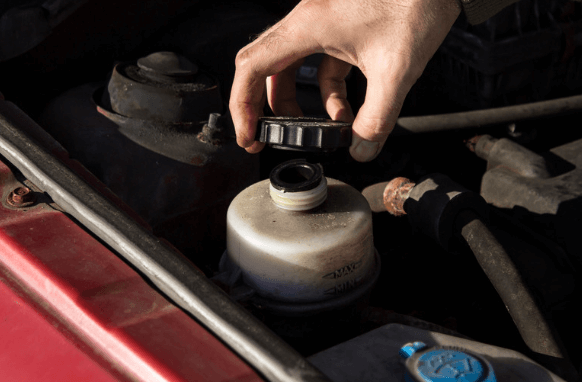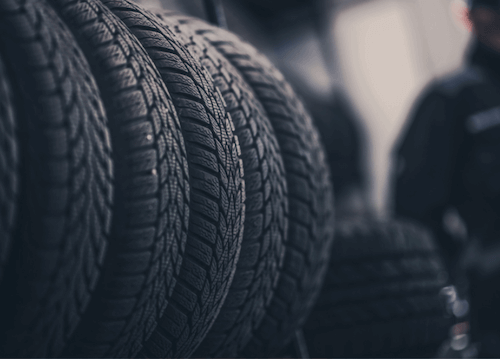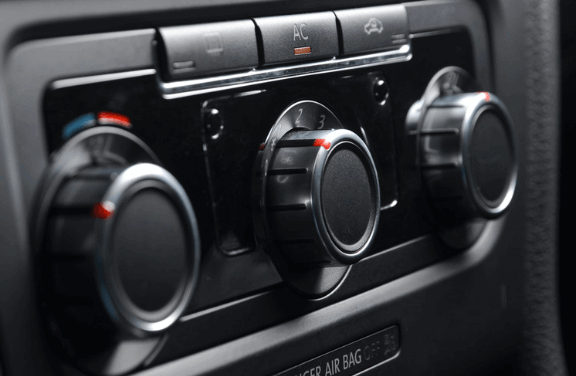During a season of dangerously high heat, your car’s air conditioning is essential. What happens when you find your AC blowing warm air? Or perhaps your system stops working altogether? The local mechanics at Chapel Hill Tire are here with insight on five reasons your car’s AC system is not working.
1) AC Settings
If your car is new (or you are switching it on for the first time this year), you might find yourself re-learning the AC controls. While it seems like it might be self-explanatory, every vehicle has a unique configuration of buttons and controls—some of which might defy your expectations.
If you find your car’s air conditioning has stopped working, the first thing you should do is double-check your controls:
- The AC Button: Some cars require you to click an AC button to run your air conditioner. In these cases, even if you have the air turned on and set to the lowest possible temperatures, the air conditioning will not activate until you flip this switch.
- Vents: Next, ensure that all vents are open and pointing in a direction you can feel. You can also double-check the settings to see which vents you have activated. If the air conditioning is turned on but only activated for the vents at your feet, you might not feel its effects as clearly as having them all turned on.
- Windshield Defrosting: If you have your front or rear windshield defrosters on, it can draw power away from your car’s central air conditioning system—or divert the airflow altogether.
If all of these checks come back clear, you likely have an issue somewhere in your car’s air conditioning that needs service.
2) Low AC Freon
When your car’s air conditioning does stop working, the most common culprit is low freon. This refrigerant is responsible for extracting heat from the air when your AC is running. Without a sufficient supply of freon, the air conditioner will not effectively cool the air running through your car.
3) Leaky Air Conditioning System
Drivers often believe that low freon requires a simple system recharge. However, your car’s air conditioner is a sealed system. While your oil and other engine fluids will need to be flushed, replenished, or replaced regularly—you should never need a refrigerant top-off. Low AC freon indicates a leak somewhere in your air conditioner. Until a mechanic finds and repairs the source of your leak, your low freon troubles will continue to arise.
4) Too Much AC Refrigerant (Overcharged Car Air Conditioner)
Have you tried to fix your air conditioner yourself? These systems require a careful balance of the right kind of freon. When you throw off this balance by adding too much refrigerant, your car air conditioner can face several potential problems:
- Car AC Blowing Warm Air: If there is not enough room for your air conditioner to compress your freon into its gas state, it will not be able to perform its cooling functions, leading to warm air pushing through your vents.
- AC System Damage: The extra pressure inside your system can cause costly leaks and breaks within your car’s air conditioner.
- Car Performance and Engine Trouble: Most drivers know that air conditioning can contribute to your fuel usage. When your system is struggling to work because it has too much freon, it can draw even more power away from your engine—leading to poor performance or engine damage.
As such, it is always best to leave air conditioning repairs to your local mechanics.
5) Failing Component
Your car’s AC is a network of parts that work together to deliver effective air conditioning. When your AC stops working, it could mean a damaged part, such as the:
- Compressor
- Condenser
- Motor
- Evaporator
- Electrical connections
When one of these components stops working, you will notice its effects on your air conditioning performance. It is best to have your AC serviced as soon as possible. The more your AC tries to work through this damage, the more stress your system will face—which can potentially harm other air conditioning components.
Chapel Hill Tire: Car AC Repair Near Me
For air conditioning repair you can trust, visit the local mechanics at Chapel Hill Tire. We can diagnose and repair your car’s AC troubles to get you feeling comfortable and Driving Happy.
Our local mechanics proudly serve the greater Triangle area with 9 locations across Raleigh, Apex, Chapel Hill, Durham, and Carrboro. The Chapel Hill Tire mechanics also commonly serve surrounding communities, including Knightdale, Cary, Pittsboro, Wake Forest, Hillsborough, Morrisville, and beyond. We invite you to make an appointment, view our coupons, or give us a call to get started today!

